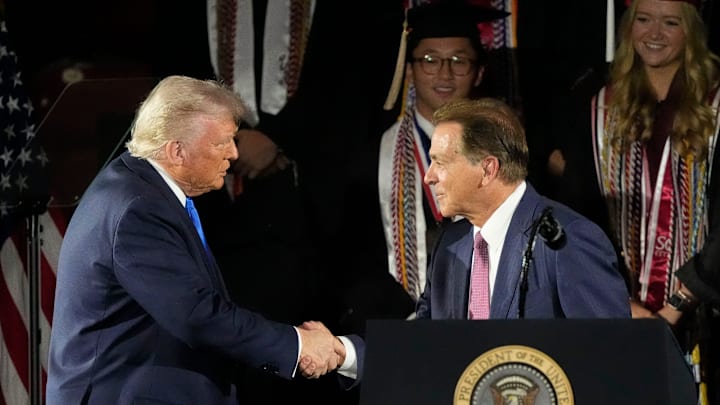As the era of NIL, the transfer portal, and now revenue share started to bubble over nearly out of control, it looked like help was on the way with the announcement of a Presidential Commission on College Sports in May 2025.
When it was announced that the legendary Nick Saban was going to co-chair this committee, even more hope blazed throughout the country, as it seems we were about to lasso in some of the madness.
Joining Saban was Texas businessman Cody Campbell, a former Texas Tech offensive lineman, whose experience with the Texas Tech NIL collective would have brought real world experience to the committee.
Most could see (and hoped for) Saban moving from a seat on the committee to eventually becoming the first (and sorely-needed) college football commissioner. But, as with most things that have government ties, things have not progressed in an expeditious manner.
Why was the idea of a Presidential Commission on College Sports tabled?
Shortly after the announcement of this commission, the White House brought the idea to a grinding halt, citing Senate negotiations regarding payments to college athletes as the reason for the stall.
Those Senate negotiations were over the NCAA settlement, which was finally announced in late June, and has now taken effect.
With that settlement now in the rearview, and the fall quickly approaching, we find ourselves in an all-too familiar position. A toothless NCAA making little effort to improve the situation, a transfer portal that has spiraled out of control, and players being promised more money than that might make in their NFL or NBA rookie deal before they've played a single minute of college ball.
The idea of real leadership for both college football and basketball seems to have become more of a dream than a balanced federal budget, and while the settlement temporarily solved some issues, it has also raised more questions and created its own set of problems.
Ask any international player who would like to profit from his name, image and likeness. Per sports business expert Kristi Dosh, author of The Athlete's NIL Playbook, there are many limitations that international athletes face that are not obstacles for those in the United States. Varying Visa types, passive vs active income-generating activities, and other risks make it nightmarish for those outside the U.S. borders.
"Unfortunately, navigating NIL opportunities as an international athlete ultimately boils down to your risk tolerance because of the lack of clear guidance from the federal government on these issues," Dosh stated in her book.
This is one of the many problems that a Presidential Commission could work to solve. But instead, the student-athletes are once again left to navigate their own way through unfriendly obstacles.
Why isn't it happening? Follow the money would be the most obvious reasons. Who stands to benefit, and who stands to lose if the current unstable, yet somehow profitable (for some) situation?
The longer things go on, the more our hope for strong leadership becomes a pipe dream, and the more damage will be done to collegiate sports. We seem to be approaching a point of no return already.
